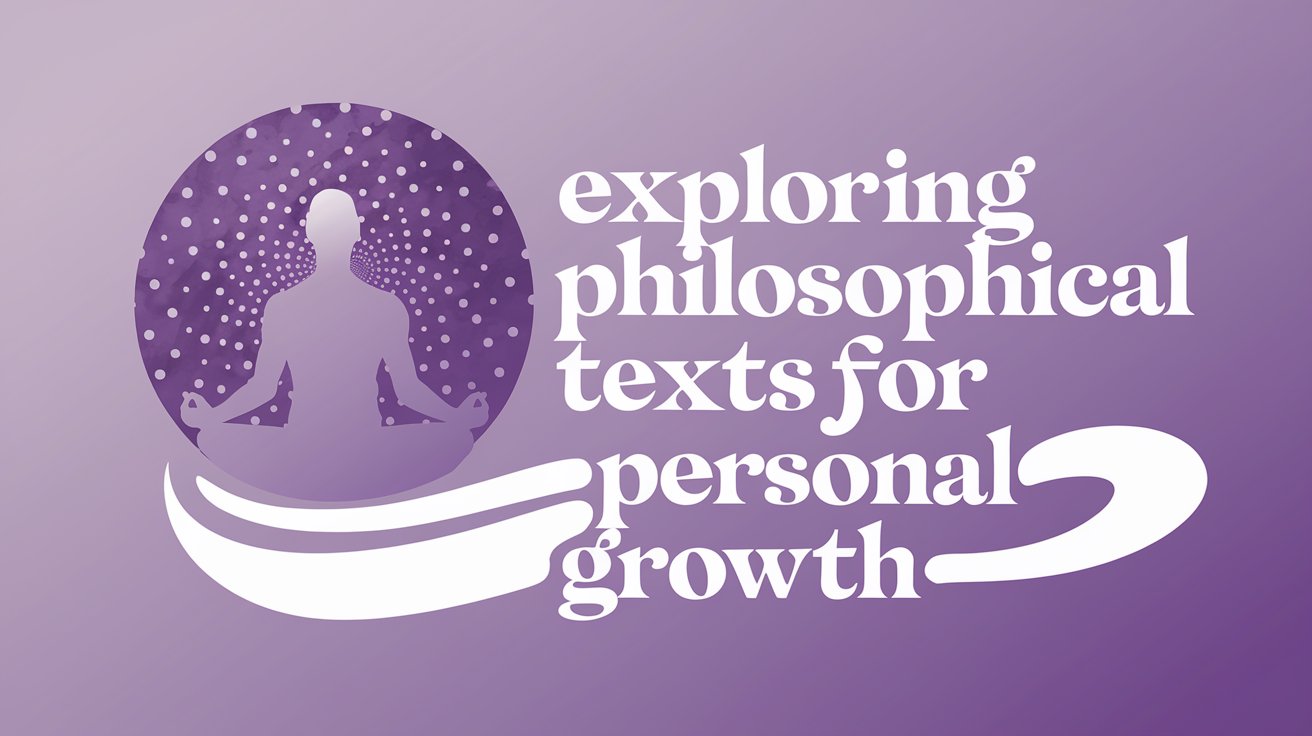
Exploring Philosophical Texts for Personal Growth
Introduction
Are you looking for a deeper understanding of yourself and the world around you? Philosophical texts can be a powerful tool for personal growth and self-awareness. By exploring the ideas and perspectives of philosophers from various traditions, you can gain a new understanding of yourself and the world.
The Benefits of Philosophical Texts
Philosophical texts offer a wealth of benefits for personal growth and self-awareness. By exploring the ideas of philosophers like Plato and Aristotle, you can develop a greater sense of self-awareness and introspection. Immanuel Kant's concept of transcendental idealism can help you understand the nature of reality and your place in it.
1. Developing Critical Thinking
Philosophical texts encourage critical thinking and analysis. By engaging with the arguments and ideas presented in these texts, you can develop your ability to evaluate information, identify biases, and form well-reasoned opinions. René Descartes' famous statement "I think, therefore I am" is a prime example of critical thinking in action.
2. Enhancing Self-Awareness
Philosophical texts can help you develop a greater sense of self-awareness. By exploring the nature of self-consciousness and personal identity, you can gain a deeper understanding of your own thoughts, feelings, and motivations. Jean-Jacques Rousseau's concept of the social contract can help you understand how your individual identity is shaped by your relationships with others.
3. Improving Mental Health
Philosophical texts can also contribute to improved mental health. By exploring the ideas of philosophers like Friedrich Nietzsche, you can develop a more nuanced understanding of the human condition and learn to manage stress and anxiety. Karl Marx's concept of alienation can help you understand how societal pressures can impact your mental health.
4. Fostering Personal Growth
Philosophical texts can inspire personal growth and self-improvement. By exploring the ideas of philosophers like Aristotle and Immanuel Kant, you can develop a greater sense of purpose and direction, and learn to cultivate virtues and values that promote well-being.
5. Encouraging Empathy and Understanding
Philosophical texts can also promote empathy and understanding. By exploring the perspectives of philosophers from different cultures and traditions, you can develop a greater appreciation for the diversity of human experience and learn to see the world from different viewpoints. David Hume's concept of sympathy can help you understand how to cultivate empathy and compassion for others.
Philosophical Texts for Personal Growth
Some notable philosophical texts that can aid in personal growth and self-awareness include:
- Philosophical texts for personal growth: Works like Plato's "The Republic" and Aristotle's "Nicomachean Ethics" can help you develop a greater sense of self-awareness and introspection.
- Eastern philosophy and mindfulness: Texts like the Bhagavad Gita and the Tao Te Ching can help you cultivate mindfulness and self-awareness.
- Western philosophy and self-awareness: Works like Immanuel Kant's "Critique of Pure Reason" and Jean-Jacques Rousseau's "The Social Contract" can help you understand the nature of self-consciousness and personal identity.
- Philosophical influences on modern thought: Texts like Friedrich Nietzsche's "Thus Spoke Zarathustra" and Karl Marx's "Das Kapital" can help you understand how philosophical ideas have shaped modern thought and culture.
- Comparative philosophy and spirituality: Works like René Descartes' "Meditations on First Philosophy" and David Hume's "A Treatise of Human Nature" can help you understand the relationships between philosophy, spirituality, and personal growth.
- Philosophical texts for mental health: Texts like Aristotle's "De Anima" and Immanuel Kant's "Grounding for the Metaphysics of Morals" can help you understand how philosophical ideas can contribute to improved mental health.
- Philosophy and emotional well-being: Works like Plato's "The Symposium" and Aristotle's "Rhetoric" can help you understand how philosophical ideas can promote emotional well-being and personal growth.
- Philosophical perspectives on happiness: Texts like Epicurus' "Letter to Menoeceus" and Immanuel Kant's "Critique of Practical Reason" can help you understand how philosophical ideas can contribute to happiness and well-being.
- Philosophical texts for self-improvement: Works like Aristotle's "Nicomachean Ethics" and Immanuel Kant's "Grounding for the Metaphysics of Morals" can help you develop a greater sense of purpose and direction, and learn to cultivate virtues and values that promote well-being.
- Philosophy and personal development: Texts like Plato's "The Republic" and Aristotle's "Politics" can help you understand how philosophical ideas can contribute to personal development and self-awareness.
For more philosophical texts and resources, check out our eBooks on Philosophical Texts.


